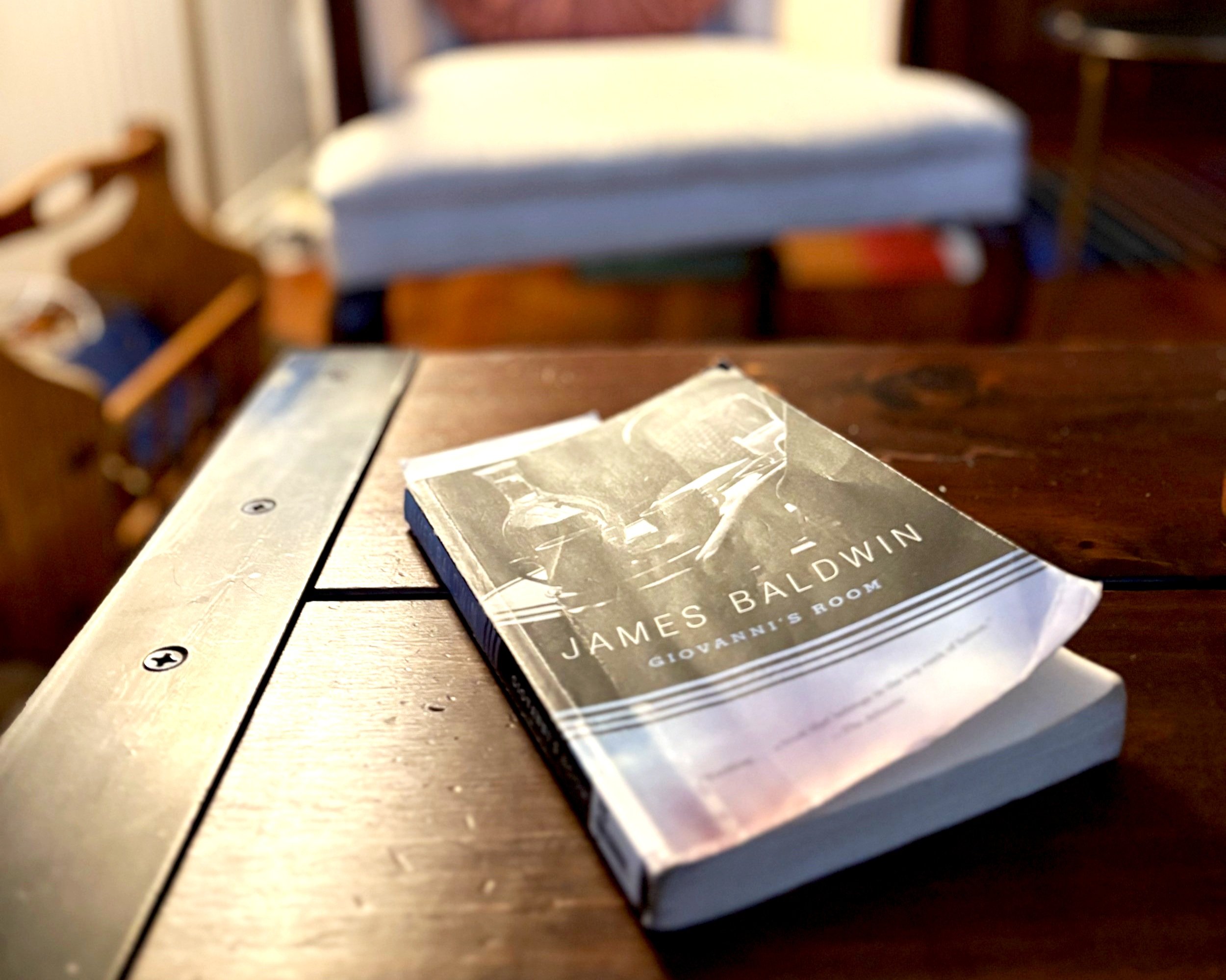Remembering Eden: Reflections on ‘Giovanni's Room’
As I prepare for my upcoming journey to Paris this February, James Baldwin's "Giovanni's Room" has taken on new resonance. Baldwin's writing has always struck me like a well-crafted perfume – immediate in its power but lingering in its depth. There's an initial draw, like a strong top note, but the middle and base notes persist, creating lasting impressions that helped shape my understanding of identity during formative years when I was grappling with my own half-Asian but passably white identity.
Reading "Giovanni's Room" now, with the prospect of experiencing Baldwin's Paris firsthand, I'm struck anew by how masterfully he explores the complexities of sexuality and human connection. The novel's treatment of sexuality as a spectrum, coupled with its deep dive into protagonist David's evolving feelings for Hella, creates a rich tapestry of human experience that remains relevant decades after its publication.
At the heart of the novel lies a profound meditation on innocence and experience, captured in a conversation between David and Jacques. Early in the narrative, Jacques observes simply, "Nobody can stay in the garden of Eden," then adds, wondering, "I wonder why." This seemingly casual exchange spawns one of the novel's most powerful reflections:
Perhaps everybody has a garden of Eden, I don't know; but they have scarcely seen their garden before they see the flaming sword. Then, perhaps, life only offers the choice of remembering the garden or forgetting it. Either, or: it takes strength to remember, it takes another kind of strength to forget, it takes a hero to do both. People who remember court madness through pain, the pain of the perpetually recurring death of their innocence; people who forget court another kind of madness, the madness of the denial of pain and the hatred of innocence; and the world is mostly divided between madmen who remember and madmen who forget. Heroes are rare.
This passage functions as the novel's thesis, illuminating David's journey from innocence to experience. At the story's opening, David resides in his own Eden, unaware of the impending fall that begins with meeting Giovanni. His denial of his own sexuality throughout much of the narrative mirrors our universal struggle with self-knowledge and acceptance.
Giovanni's introduction is particularly masterful. Baldwin creates an immediately alluring and charismatic character, with initial encounters between Giovanni and David crackling with tension expressed through disagreement and debate. Their attraction manifests in intellectual sparring, creating a complex dynamic that transcends simple physical desire.
The novel's handling of Giovanni's death is equally sophisticated, using shifts in verb tense and filtering the events through David's imagination. This narrative distance creates a potent tension, making the reader feel David's removal from the situation while simultaneously longing to bridge that gap. It emphasizes the fundamental distance present in all relationships – the not-knowing that persists even in our most intimate connections.
As a protagonist, David can be frustrating in his inability to communicate honestly with those around him, particularly Hella. His treatment of her, especially toward the novel's end, while true to the character and the pressures of the time, reflects a failure to navigate complex emotional terrain with the honesty it deserves. Even with the perspective of seventy years of social progress, the pressure to conform to heteronormative expectations remains relevant, if less explicit.
The quote about Eden resonates beyond its immediate context of sexual awakening and identity. It speaks to the universal experience of growing up, of losing innocence and gaining knowledge. Some cling desperately to childhood innocence, while others abandon it entirely, losing their sense of wonder. Either extreme risks bitterness and callousness. Baldwin suggests that heroism lies in both remembering and forgetting – perhaps in embracing the best parts of what we leave behind while accepting their transformation into something new.
This idea manifests beautifully in the novel's final image of the blue envelope from Jacques that David tears apart. Like innocence itself, some pieces scatter in the wind while others blow back, lingering like persistent memories that refuse to be fully discarded. It's a fitting metaphor for the hero's journey Baldwin describes – the delicate balance of remembering and forgetting, of holding on and letting go.



